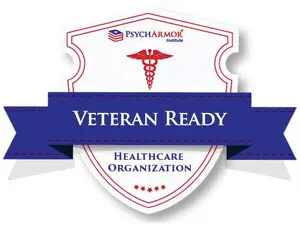Want to Relieve Stress? Keep a Gratitude Journal
It’s always helpful to have a few stress-relieving tools you can rely on, especially in recovery. Plenty of sleep, a healthy eating plan, a strong support network, and maybe even a spiritual practice are strong pillars of wellness. Research also indicates that you can help reduce stress by keeping a gratitude journal, too. Let’s take a closer look at why.
How Does Expressing Gratitude Help Us?
UCLA Health notes that “practicing gratitude—15 minutes a day, five days a week—for at least six weeks can enhance mental wellness and possibly promote a lasting change in perspective. Gratitude and its mental health benefits can also positively affect your physical health.” And there’s research to support these points and more.
- The International Society for Quality of Life Studies released findings from a 2022 report that indicated focusing on and writing about gratitude helped decrease stress and other negative effects during the height of the COVID pandemic.
- Time magazine featured various studies that highlighted the positive impact gratitude has on eating habits, sleep, and other aspects of self-care. For example, people who “count blessings, not sheep,” according to researcher Emma Seppälä, sleep more soundly and for a longer period of time. Her theory is positive thoughts calm the nervous system, prompting better rest.
- Expressing gratitude also enhances your emotional maturity, according to Harvard Medical School. This characteristic has less to do with age and more about the ability to handle conflicts or difficult situations without escalating them using introspection and modified behaviors. Enhanced emotional maturity helps you reframe your stressors more clearly.
- Researchers at the Greater Good Science Center at the University of California, Berkeley, conducted a study involving 300 adult respondents. Of this number, one-third of the group wrote gratitude letters, another third wrote only about negative experiences, and the final third didn’t have a writing exercise. One important finding: people who wrote gratitude letters experienced measurably improved mental health up to 12 weeks after the study.
There’s also proof that journaling is an effective form of stress management with numerous benefits:
- It helps reduce worrying or rumination.
- It provides a safe outlet for various thoughts and feelings, which may help lessen symptoms of anxiety, depression, hostility, and stress.
- The physical act of writing creates important brain connections and enhances your ability to think about what you’re learning or reflecting on to greater effect.
So how can you merge the benefits of gratitude and journaling?
Tips for Keeping a Gratitude Journal
There really aren’t any rules to this practice, but here are some suggestions to guide you.
- Choose a journal. It can be a notebook, a digital document, or even an app dedicated to journaling.
- Set aside time. This could be in the morning, before bed, or during a break in your day. Just be consistent. Try to do this exercise as part of your daily recovery practice or at least regularly. It might take time to make it a habit, so be patient with yourself.
- Write down what you’re grateful for—and maybe why. Reflect on your day or your life in general. Identify three to five things you’re thankful for and write them down. They can be big things like family, health, or achievements, or smaller, everyday things like a good cup of coffee or a beautiful sunset. When you’re more specific, it helps deepen your appreciation and understanding.
- Stay open-minded. There might be days when it’s harder to find things to be grateful for. That’s okay. Even during tough times, there’s usually something positive to acknowledge, even if it’s as simple as having a roof over your head or a supportive friend.
Remember, a gratitude journal is a personal practice, so feel free to adjust it to fit your preferences and lifestyle. The goal is to train your mind to focus more on the good things in your life, fostering a more appreciative outlook.
Should you review and reflect on what you’ve entered? It really depends on your preference. If you periodically go back and read what you’ve written, this might help reinforce aspects of gratitude and remind you of the positive aspects of your life when you’re feeling stressed.
Need some additional pointers? Here are a few:
- Greater Good Science Center has a tool called THNX4 that provides nudges for deeper thought, special daily and weekly challenges, and a platform to share with others, if you prefer.
- The Science of People offers these gratitude journal prompts to help you flush out ideas, reflections, and feelings.
- Positive Psychology has different templates to try.
Seabrook’s Holistic Approach to Wellness
Comprehensive whole-person care has many components. Seabrook offers four award-winning addiction treatment centers in New Jersey with a foundation in the evidence-based Seabrook Model, which includes many important aspects of holistic therapies to complement your recovery. Learn why this approach sets you up for long-lasting wellness.




